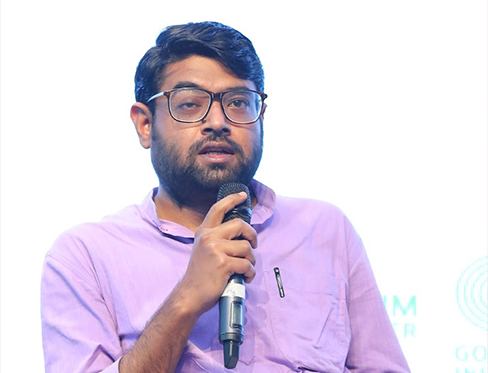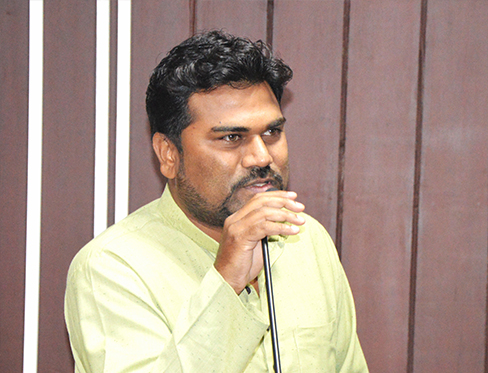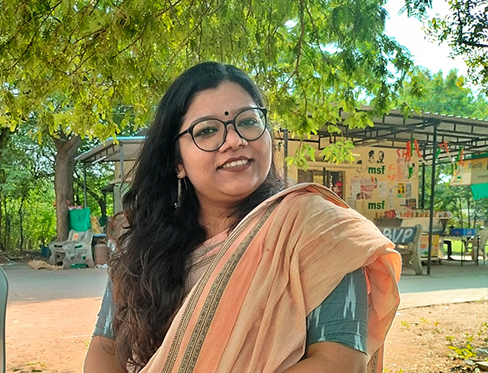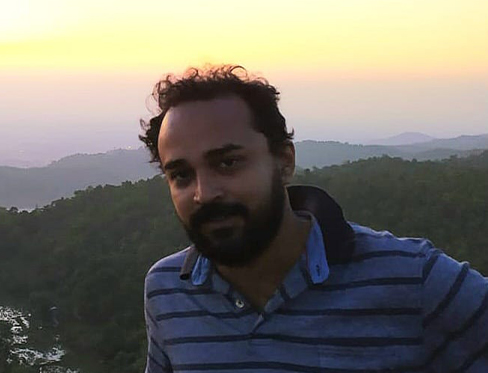About the project
Modern Dalit literature, though has a history of less than a century, has found its niche within the well-defined disciplinary domain of social sciences and humanities. With inclusion in graduate and post-graduate syllabi, in research projects, and through the establishment of state and national-level Dalit literature committees since the 1990s, this branch of literature has come a long way. The little magazines that provided the mid-twentieth century Dalit literature with a platform, an agreeable format and an avant-garde ethos matching the counter-public spirit of the Dalit writers are also the architects behind this recognition. Though these little magazines and periodicals are often mentioned in the critical introductions of the existing anthologies, research on them and into their production, circulation and reception, and their relationship with the little magazine movement is yet to emerge.
In the absence of thorough scholarship on the conditions of production and circulation of vernacular Dalit literature and periodicals, it is the translated anthologies and their introductions that one has to scrutinize for insights into the world of Dalit literary productions. The introductions by Eleanor Zelliot, K Satyanarayana and M Dasan bear witness to the fact that Dalit literature is often printed and circulated as ‘slim booklets’, journals and sold at conferences and fairgrounds. These journals periodically suffer from an acute lack of preservation and, due to their unorganised or semi-organised nature (published by individuals), often become a rare commodity to access. Most of them, being non-commercial and non-profit ventures, are destined to deal with an incessant financial crunch. In her introduction to Under My Dark Skin , Debi Chatterjee shares that in West Bengal, Dalit writings have taken the form of a ‘movement’ roughly around the 1990s and often found themselves aligned with the long-existing “little magazine movement.” Subsequently, poems, short stories, novels, and dramas by Dalit writers have started pouring into the pages of little magazines. But as many of these magazines have been struggling for survival and identity, Bangla Dalit writings have shared in their fate, making it arduous to retrieve these writings.
This project was conceived in the abovementioned context. The proximity between the little magazine movement and the Dalit periodical cultures, and the lack of access to these periodicals and research on them were therefore of primary concern. Some of the questions the investigators attempted to engage with are - Besides ‘movement’-like proximity, what was the relationship between the little magazines and the Dalit periodicals? Under what conditions of production and circulation did these Dalit periodicals function? What were their contributions to shaping the Dalit literary worlds, to vernacular discourse on Dalit issues?
Objectives
- Identifying Bangla and Marathi Dalit periodicals that shaped the respective Dalit literary worlds
- Engaging with the relationship between little magazines and Dalit periodicals,
- Creation of a digital repository of the identified and traceable periodicals to ensure easier and comparatively longer and stable access to these materials,
- Bring together experts in the relevant field in the platform of a conference and contemplate further research possibilities, and
- Through translation into English, creating much-needed resources like critical anthologies for further research.
People
Principal Investigator (PI) : Dr Sayantan Mondal, Associate Professor at the Dept. of English, GITAM School of Humanities and Social Sciences, GITAM (Deemed to be University), Hyderabad campus. He has a doctorate in Comparative Literature from the University of Hyderabad, and he was an Erasmus Mundus fellow at the University of Oxford, during 2015-16. His areas of expertise and interest include Print Culture and readership, Book History, Translation Studies, Digital Humanities, and Dalit Studies.

CO-Principal Investigator (CO-PI) : Dr Jondhale Rahul Hiraman, Associate Professor at the Dept. of English, GITAM School of Humanities and Social Sciences, GITAM (Deemed to be University), Hyderabad campus. He has an MPhil and a doctorate in English (Cultural Studies) from The English and Foreign Languages University, Hyderabad. He has been associated with the network on Writing, Translating and Analysing Dalit Literature, Nottingham Trent University and Institute for Comparative Literature and Society, Columbia University, New York.His areas of expertise and interest include Cultural Studies, Dalit Literature/Studies, Vernacular literature (Marathi) and its translation, and Digital Humanities

Project Assistant : Dr Mitaja Chakraborty is based in IISER Mohali working as Research Associate on DST project - GATI (Gender Advancement for Transforming Institutions). She has completed her PhD from the department of sociology at the University of Hyderabad. Her doctoral research looked at the activists networks vis-a-vis gendered labour in the garment industry of Dhaka, Bangladesh. Her research interests includes, transnational networks, gendered labour, globalisation and labour.

Project Assistant : : Mr. Akash Bhattacharya is an independent teacher of chemistry. After MSc in chemistry from University of Hyderabad, he has worked briefly with the industry before joining as a teacher at the Apeejay School, Kolkata. He has also worked as a freelance journalist and reported on Industrial pollution and social movements. He has been a visiting fellow at the Homi Bhabha Centre for Science Education. His areas of interest include decolonial and social justice oriented approaches to chemistry

Future plans and collaborations
We aspire to follow up the current project with -
- Organisation of annual events such as digitisation and translation workshops; conferences around Print culture, Dalit periodical press with the aim of shaping more endeavours preserving Dalit periodicals, encouraging translations of Dalit literature across Indian languages as well as into English and to generate research questions and ideas relative to Dalit periodical press.
- Digitisation of Dalit periodicals across Indian languages. We invite expressions of interest for collaboration in fashioning a Nodal Centre that will function as a centre of expertise exchange on technical aspects of preservation as well as serve as a meeting point among multiple linguistic and Dalit print traditions.
